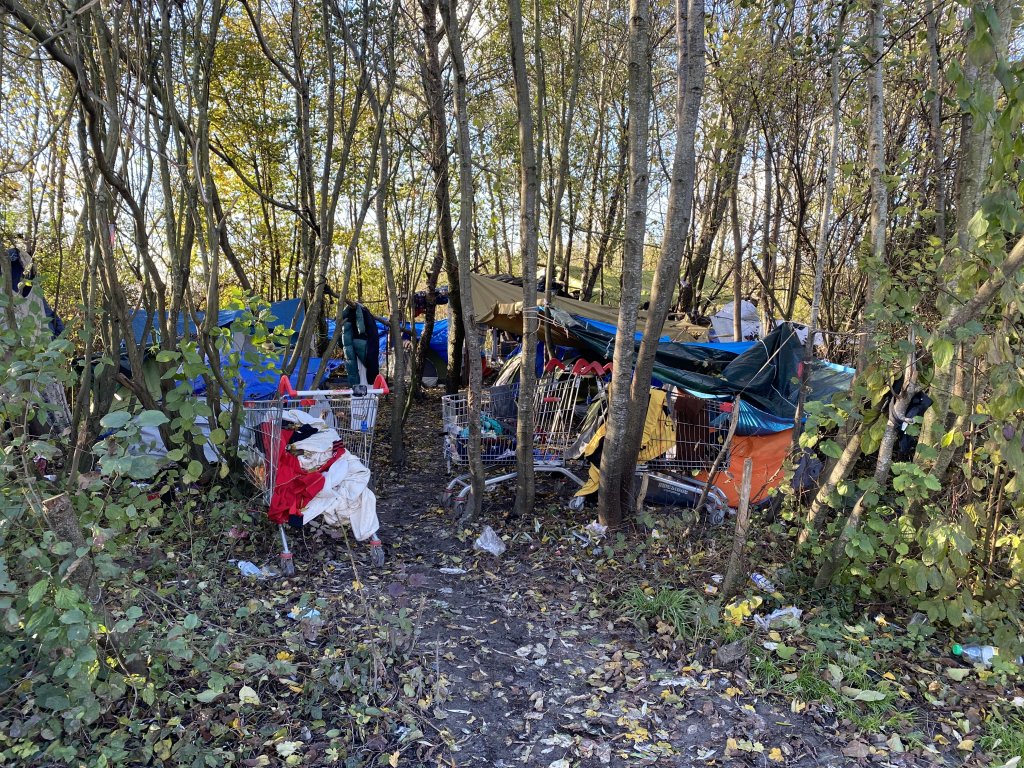The Lille Administrative Court on Tuesday rejected a request from three Calais migrant aid associations calling for "appropriate measures" for garbage collection in the city’s camps. While the associations acknowledge that resources are being implemented, they believe they are insufficient and are causing "serious unsanitary conditions".
On June 10, the Lille administrative court rejected the request made by Calais Food Collective, Salam, and Solidarités International to require local authorities to respect the "right to garbage collection" in the migrant camps of Calais in northern France.
Specifically, the three associations had requested the city hall and the urban community to provide "the necessary and adapted equipment to ensure the cleanliness of living spaces (dumpsters, rolling bins, and garbage bags)." They called for the garbage collection services to be provided "at an adapted and sufficient frequency."
'Serious unsanitary conditions'
Yet in his order, seen by AFP, the interim relief judge ruled on June 10 that there was no "failure by the public authorities in Calais that would expose people to being subjected, in a clear manner, to inhuman or degrading treatment, thus seriously and manifestly unlawfully violating a fundamental freedom of these people."
The interim judge emphasized that the city of Calais and its urban community, both led by Natacha Bouchart, have set up, with other associations, "a collection service for waste generated by migrants, which operates twice a week."

Furthermore, the municipal services "regularly" check the locations where illegal dumping is reported and intervene "spontaneously when they notice the presence of waste abandoned by migrants during their rounds," the judge noted.
The associations acknowledge that a system exists, but they believe it is not enough. "In light of the serious unsanitary conditions we see every day in the camps in northern France, there is no doubt that the measures put in place are not effective," said Elise Duloutre, legal advisor at Solidarités International, in an interview with InfoMigrants.
She said, for example, that no garbage bags are distributed by the communities in the camps. "People are totally destitute and they have no means of disposing of their waste. If there are no suitable tools, even if it's just garbage bags, we can't ask people to gather their garbage and bring it to a specific location," she said.
'An extremely complex problem'
Solidarités International conducted a "diagnosis" at the end of 2024, highlighting "difficulties, shortcomings, and failures" in waste collection, said Lionel Crusoé, a lawyer for the associations.
Read AlsoUNHCR: Lack of information prevents migrants in Calais from seeking asylum in France
Health risks like "the risk of the spread of disease, pests, rats, and mosquitoes” are "omnipresent", and would be exacerbated by upcoming summer heatwaves, said Duloutre to the press.
This is an "extremely complex problem" which the local authorities are trying to solve "every day, every month, every year", said Paul-Guillaume Balaÿ, the lawyer for two local governments. The authorities claimed that 350 tons of waste were removed from around the camps in 2024.
"An illegal camp is by nature unsanitary (...). We will never obtain proper sanitary conditions," added Balaÿ.
Some 1,500 migrants hoping to cross the Channel and reach England are present in and around the city of Calais, living in temporary camps that are regularly evacuated by law enforcement.
